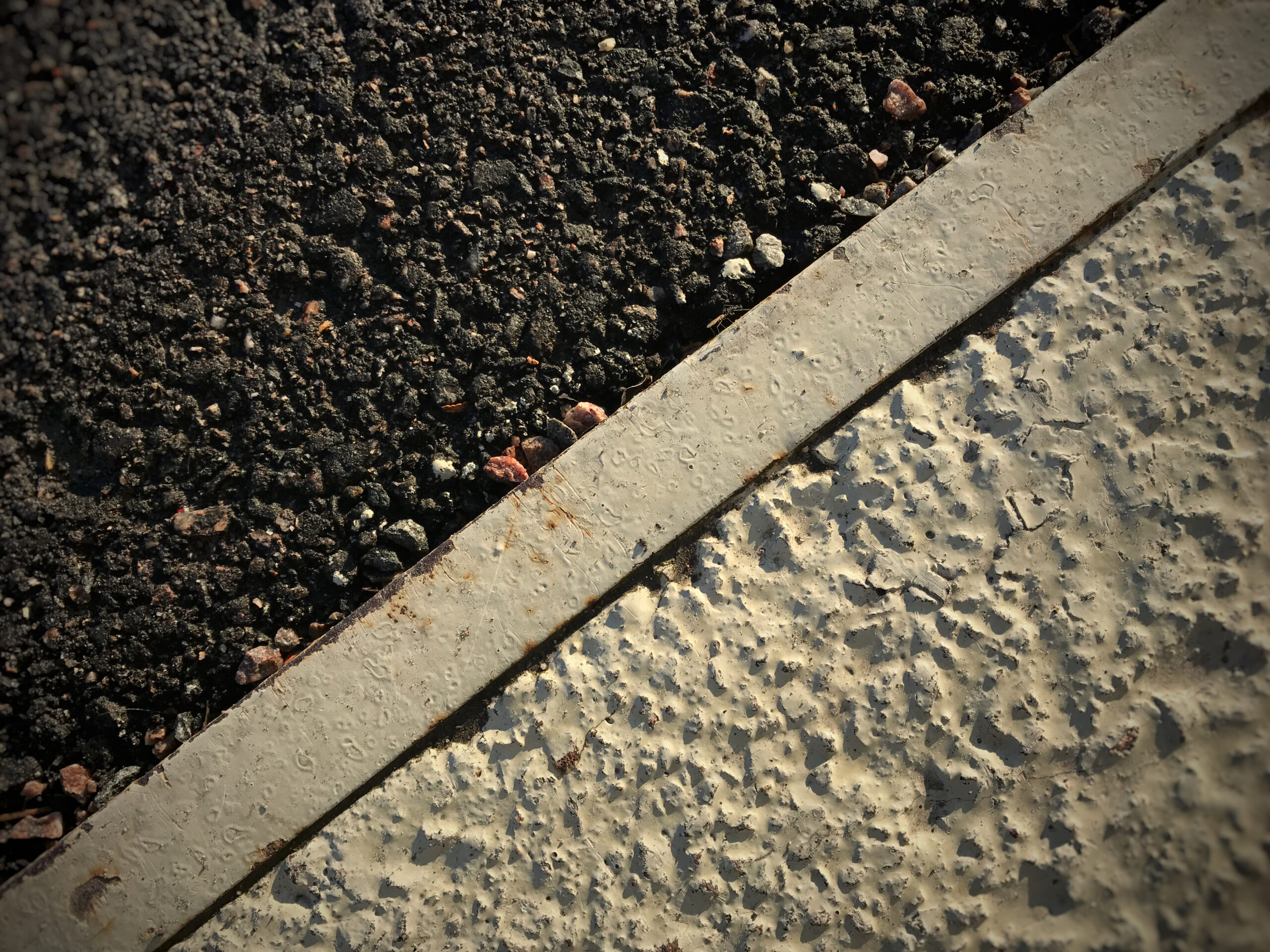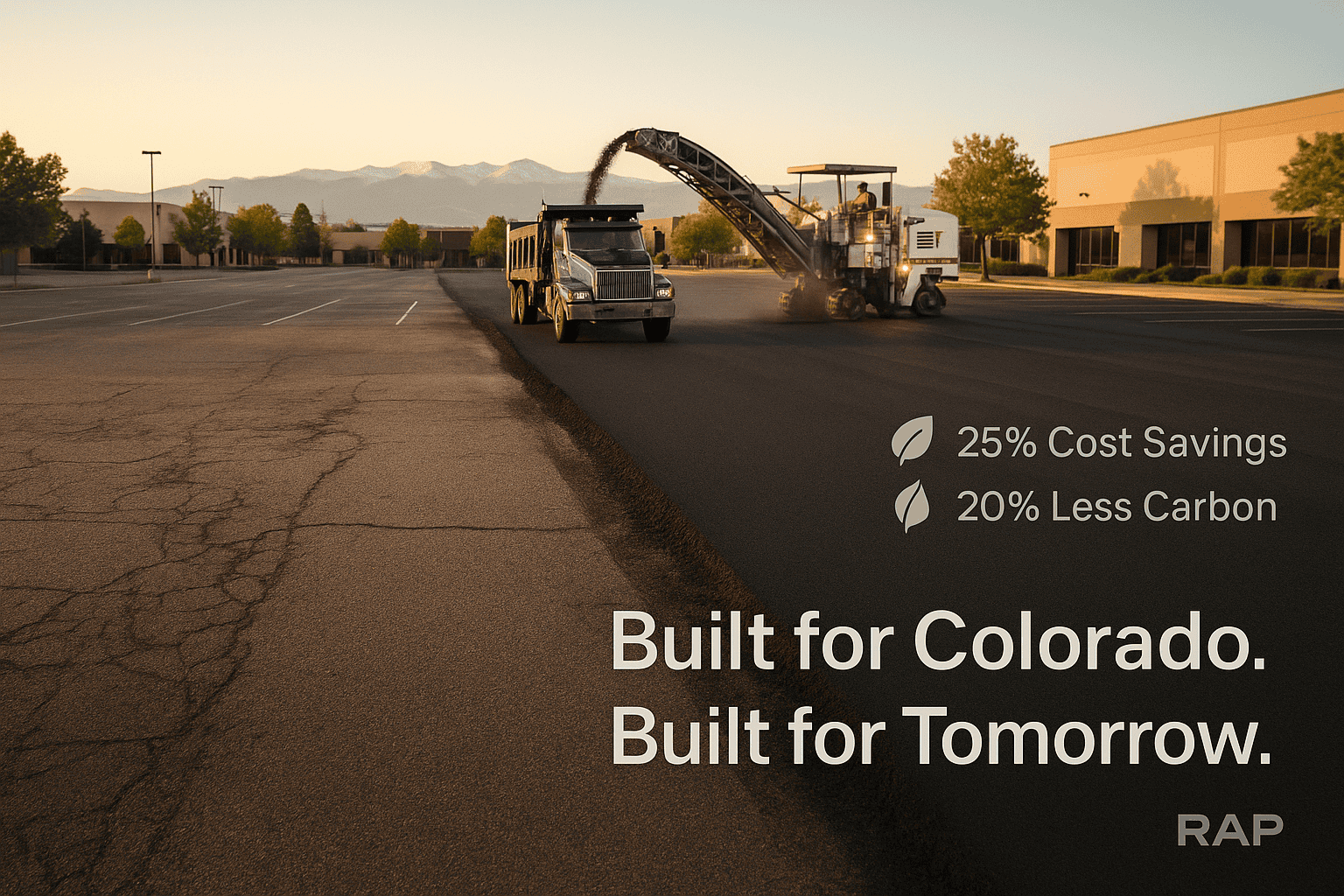
When your driveway or parking lot starts cracking, repairs aren’t optional; they’re urgent! But the bigger question is: Should you go with concrete or asphalt?
Both seem solid on the surface, but they age differently, react to weather in their own ways, and hit your wallet over time. Concrete generally lasts longer than asphalt, but the choice might depend on your requirements.
Choosing the wrong one could mean fixing the same problem again in just a few years.
Read this blog to understand the real differences between concrete and asphalt repair. Let’s see how their lifespan, installation, and maintenance compare so you can make a smart decision for your property.
What You Need to Know Before Choosing a Paving Material
There are some questions you should ask yourself when deciding between concrete and asphalt repairs:
- How much traffic will the surface handle?
- What’s the climate like in the area?
- How much maintenance is required for each material?
- What is the budget for repairs?
- Will the surface handle heavy loads?
- How important is the surface’s appearance?
- How quickly should the repairs be completed?
- What is the environmental impact of each material?
You can make a much better decision once you have clear answers to these questions.
Now let’s compare both pavement repair types to help you make an informed decision.
Which is More Durable and Lasts Longer?
As reported by Michigan’s Department of Transportation, on average, an asphalt roadway can last up to 15.5 years, whereas a concrete pavement can last up to 27.5 years on average.
Here’s a detailed comparison:
- Asphalt: An asphalt pavement is more prone to damage from weather, such as extreme heat or heavy rain. The surface can crack or soften, which leads to the need for patching every few years.
- Concrete: Concrete repairs generally last longer, up to 30 years. This material can handle more weight without showing wear. However, it’s more likely to crack if there’s a sudden shift in temperature or moisture.
While asphalt is quicker to repair, concrete offers more long-term durability, especially in high-traffic areas. But when concrete does break, repairs are costlier and will require more effort from you.
Installation & Maintenance Needs
When it comes to repairs, both asphalt and concrete have different installation processes. Asphalt is quicker to install, with the repair process often completed in a day or two, and the surface can be used almost immediately.
On the other hand, concrete requires a longer curing time. Once it’s applied, the surface needs at least 24–48 hours to set properly. This means you might need to wait longer before the area is usable. It can take up to a week to cure completely.
Maintenance also varies. Asphalt repairs tend to need more frequent attention—think crack filling and resealing every 2–5 years. Concrete repairs, while needing less frequent upkeep, may require patching or resurfacing after a longer period, especially if there are issues with cracking or settling.
So, while asphalt offers convenience in the short term, concrete may save you time and effort on maintenance in the long run.
Weather and Climate Performance
Weather plays a big role in how well asphalt or concrete repairs hold up over time. Each material reacts differently to heat, cold, and moisture.
- Asphalt: It performs well in colder climates because it expands and contracts without cracking as easily. But in hot weather, it can soften and become sticky, leading to surface damage and rutting. Heavy rain can also wash away loose materials if not properly sealed.
- Concrete: It handles heat better and doesn’t soften, which makes it ideal for warmer regions. However, it’s more vulnerable to freezing and thawing. In colder areas, moisture can seep into small cracks, freeze, and expand, and it can cause the surface to break apart.
If you live in an area with harsh winters, asphalt may give you fewer headaches. For hot or moderate climates, concrete tends to perform better in the long run.
Cost Implications Over Time
The initial cost of repairing asphalt or concrete can differ, but the long-term costs are an important consideration for any property owner.
- Asphalt: Asphalt repairs tend to be more affordable upfront. However, regular maintenance is necessary to keep it in good shape. Frequent sealcoating and patching can add up over time. If not properly maintained, you may need larger repairs sooner.
- Concrete: While concrete repairs may cost more initially, they often last longer without requiring as much upkeep. Concrete doesn’t need frequent sealing, and it can handle wear and tear more efficiently. However, when damage does occur, repairs can be more expensive and time-consuming due to the complexity of working with concrete.
Overall, while asphalt may have lower initial costs, concrete could be a better investment in the long run if you’re looking for durability and fewer ongoing repair costs.
Environmental Considerations
If you’re thinking about the environmental impact of repairs, both materials have pros and cons.
- Asphalt: Asphalt is recyclable, and old asphalt can be reused in new mixes. However, its production involves petroleum, which contributes to emissions during manufacturing.
- Concrete: Concrete has a longer lifespan, which can reduce the frequency of repairs and waste. But its production releases more CO₂, especially due to cement, which is one of its key ingredients.
Another thing to consider is heat retention. Asphalt absorbs more heat, which can increase surface temperatures around buildings and homes. Concrete reflects more light and stays much cooler.
If sustainability matters to you, using recycled materials and choosing repair methods that reduce waste can make a difference with either option.
Comparing Load-Bearing Capacity
Due to the structural differences between both materials, is there a considerable amount of difference between how much load they can bear over time.
- Asphalt can handle weight, a lot of it, but it’s more flexible than concrete. Over time, that flexibility can lead to dents or ruts if the surface supports large vehicles regularly.
- Concrete is naturally stronger and better suited for areas with heavy, consistent traffic, like loading docks or industrial spaces. It holds up well under pressure without shifting or warping.
For homes or light-use areas, asphalt works just fine. But if you expect frequent heavy loads, concrete is usually the better long-term choice.
Which Provides Better Aesthetics?
For aesthetics, both offer different outlooks. Concrete has a clean, light-gray finish that suits modern or upscale properties. It can even be stamped or stained for added decorative flair.
Asphalt, on the other hand, has a smooth, dark surface that blends well with roads and driveways and hides stains better. Still, over time, asphalt may fade to gray, while concrete could show more visible wear, like discoloration or small cracks.
Ultimately, the choice depends on which style you prefer and how noticeable the surface will be.
Do You Need to Seal Asphalt or Concrete?
Asphalt needs to be sealed regularly to keep it in good shape. Typically, it should be sealed every 2-3 years to protect it from cracks, water, and sun damage.
Concrete doesn’t need sealing as often. While sealing, it can help prevent stains and minor damage, but it’s not essential for keeping it durable. Concrete generally lasts well without needing frequent attention, making it a bit easier to maintain than asphalt.
A Quick Side-by-Side Comparison
Here’s a simple comparison to help you weigh your options between asphalt and concrete repairs.
| Factor | Asphalt Repairs | Concrete Repairs |
| Installation Time | Quick, it can be used almost immediately | Requires curing time (usually 7 days) |
| Maintenance Needs | Regular sealing and patching are needed | Minimal maintenance, occasional sealing optional |
| Climate Performance | Sensitive to extreme heat and cold | Performs well in extreme temperatures |
| Durability | Shorter lifespan, more frequent repairs needed | Longer lifespan, fewer repairs |
| Cost | Lower upfront costs but higher long-term maintenance | Higher upfront costs, lower long-term maintenance |
| Environmental Impact | Recyclable, but petroleum-based | More CO₂ emissions during production |
| Aesthetic Longevity | May fade and crack over time | Retains appearance longer, can discolor or crack |
| Sealing Requirements | Needs sealing every 2-3 years | Sealing is optional, but can extend lifespan |
Now that you know the key differences between asphalt and concrete repairs, you can make a more informed decision based on your needs, budget, and climate.
Frequently Asked Questions
What type of driveway lasts the longest?
Concrete sidewalks typically last the longest, often 30 to 40 years with proper care. They’re more resistant to weather, heavy loads, and everyday wear compared to asphalt or gravel.
What is the life expectancy of a concrete parking lot?
A well-installed and maintained concrete parking lot can last 30 to 40 years. Regular cleaning, sealing, and timely crack repairs can help extend its lifespan.
Why choose asphalt over concrete?
Asphalt is faster and cheaper to install, making it a budget-friendly option. It’s also easier to repair and performs better in colder climates since it’s less likely to crack from freeze-thaw cycles.
Is it worth switching from asphalt to concrete for long-term savings?
Yes, if you plan to stay long-term. Concrete costs more upfront but lasts nearly twice as long as asphalt and needs less maintenance, which can save you money over time.
How often should I repair or resurface my asphalt or concrete driveway?
Asphalt usually needs resurfacing every 10–15 years, with smaller repairs more often. Concrete needs fewer repairs, but cracks or spalling should be fixed as soon as they appear to avoid bigger issues.
Concrete or Asphalt Repair: What’s Your Best Bet?
When it comes to repairs, concrete tends to last longer than asphalt. It’s a more durable option that can handle the test of time, though it might cost more upfront. Asphalt, on the other hand, is a quicker, more affordable choice but needs regular maintenance.
This blog has helped you understand the key differences between the two, so now you can make a more informed choice based on what matters most for your property.
If you’re a business owner looking to keep your parking lots or driveways in great shape, Asphalt Coatings Company is here to help. We offer professional asphalt repair, concrete repair, and maintenance for commercial and industrial businesses.
Contact us today for a free consultation!


